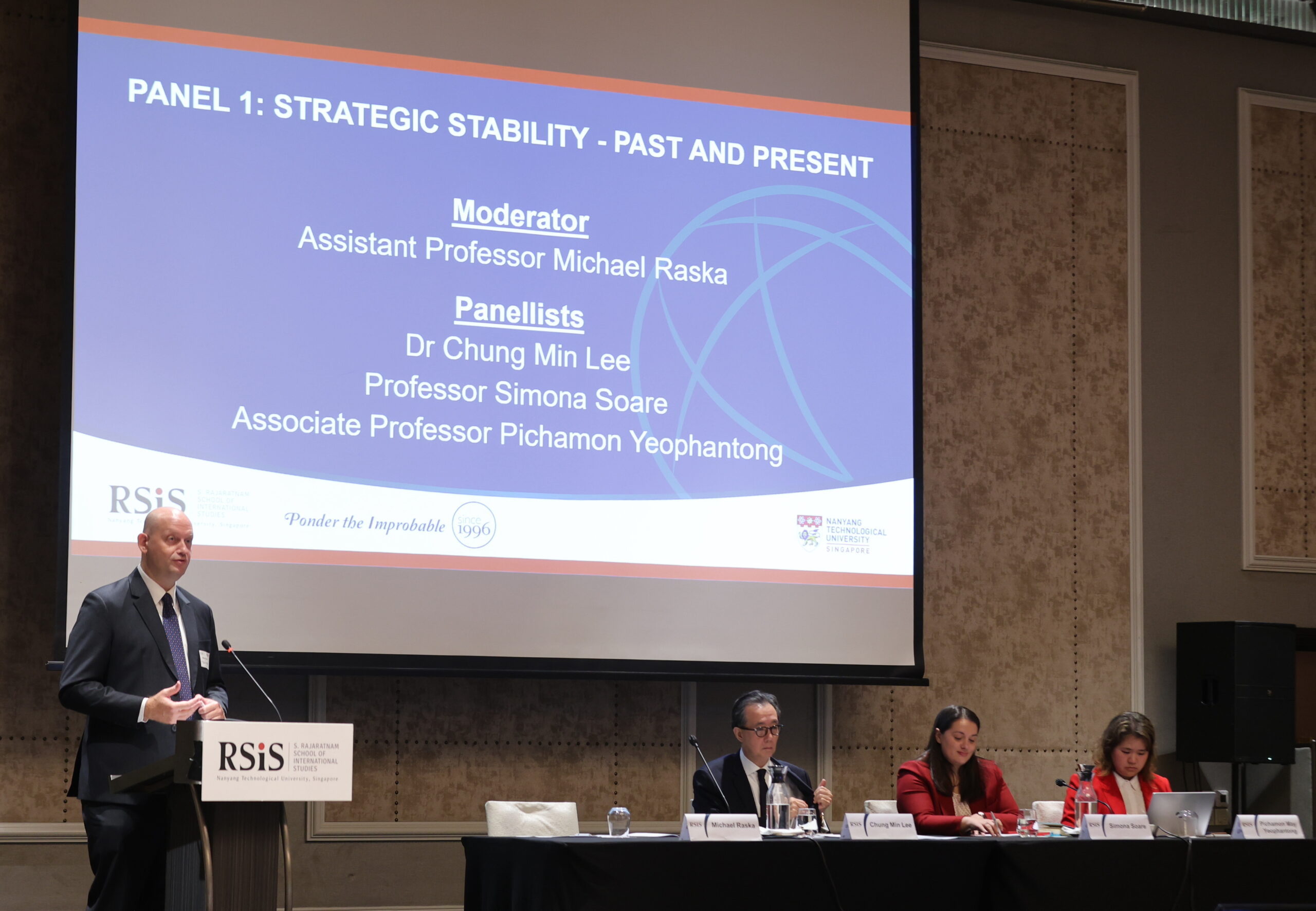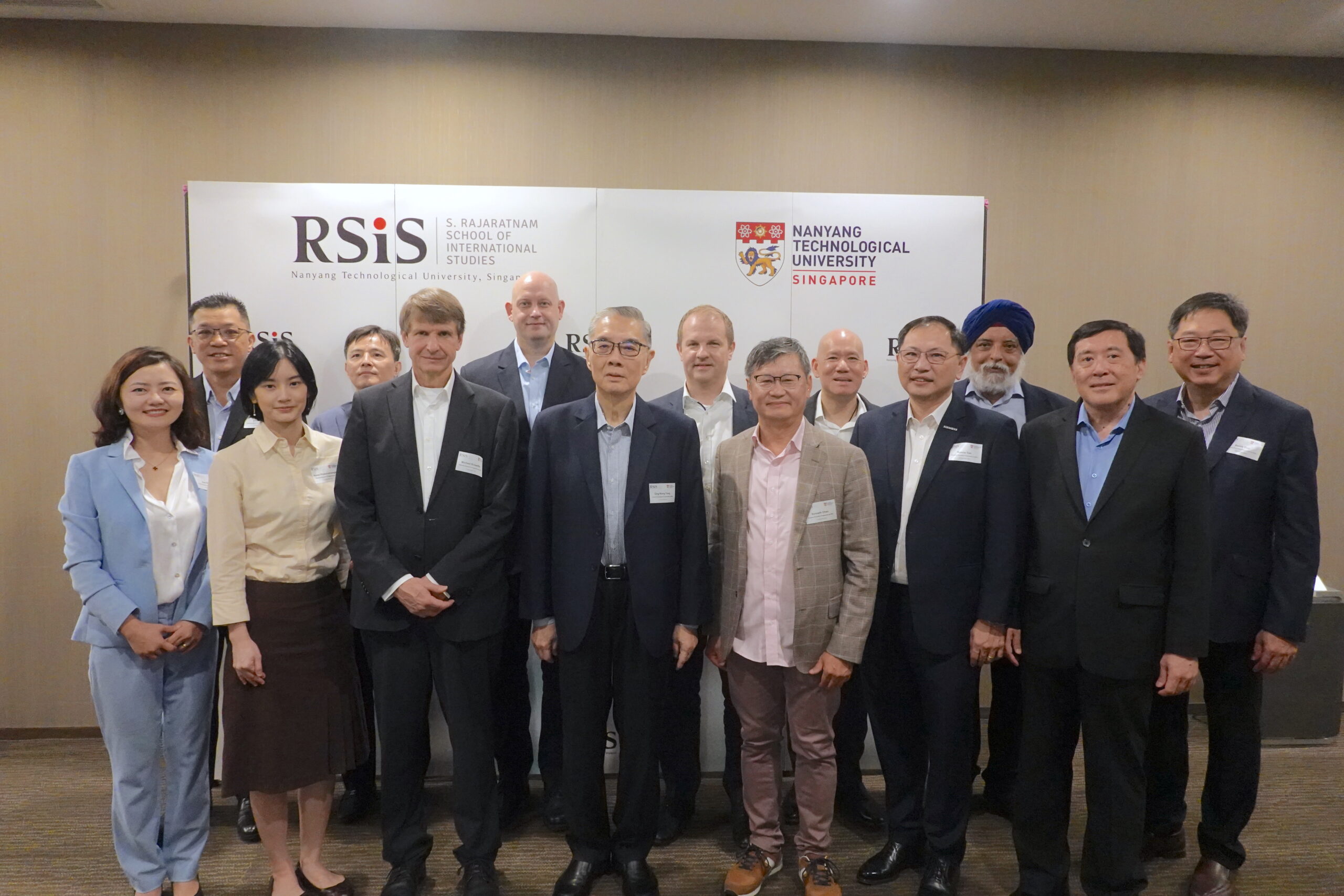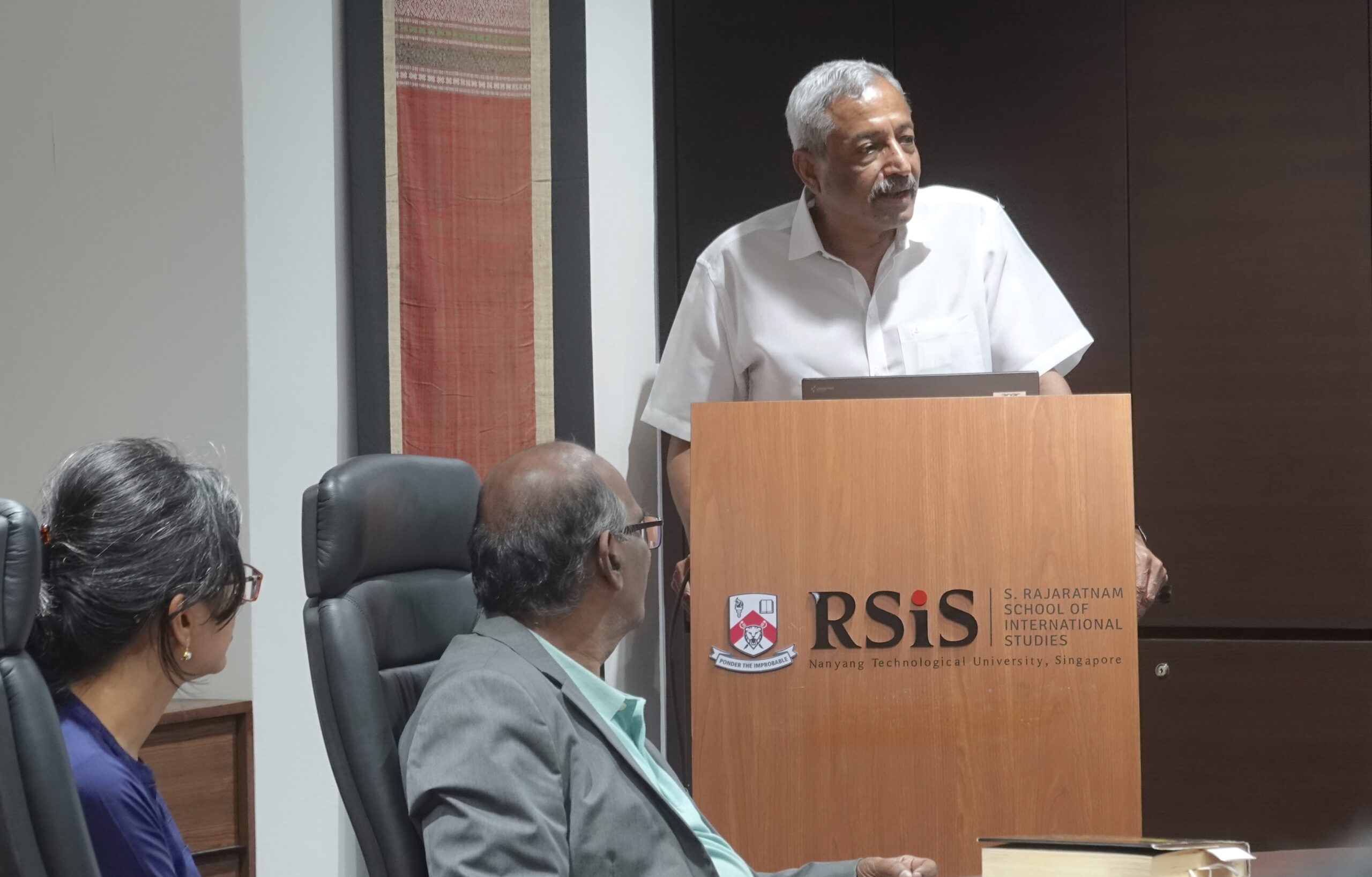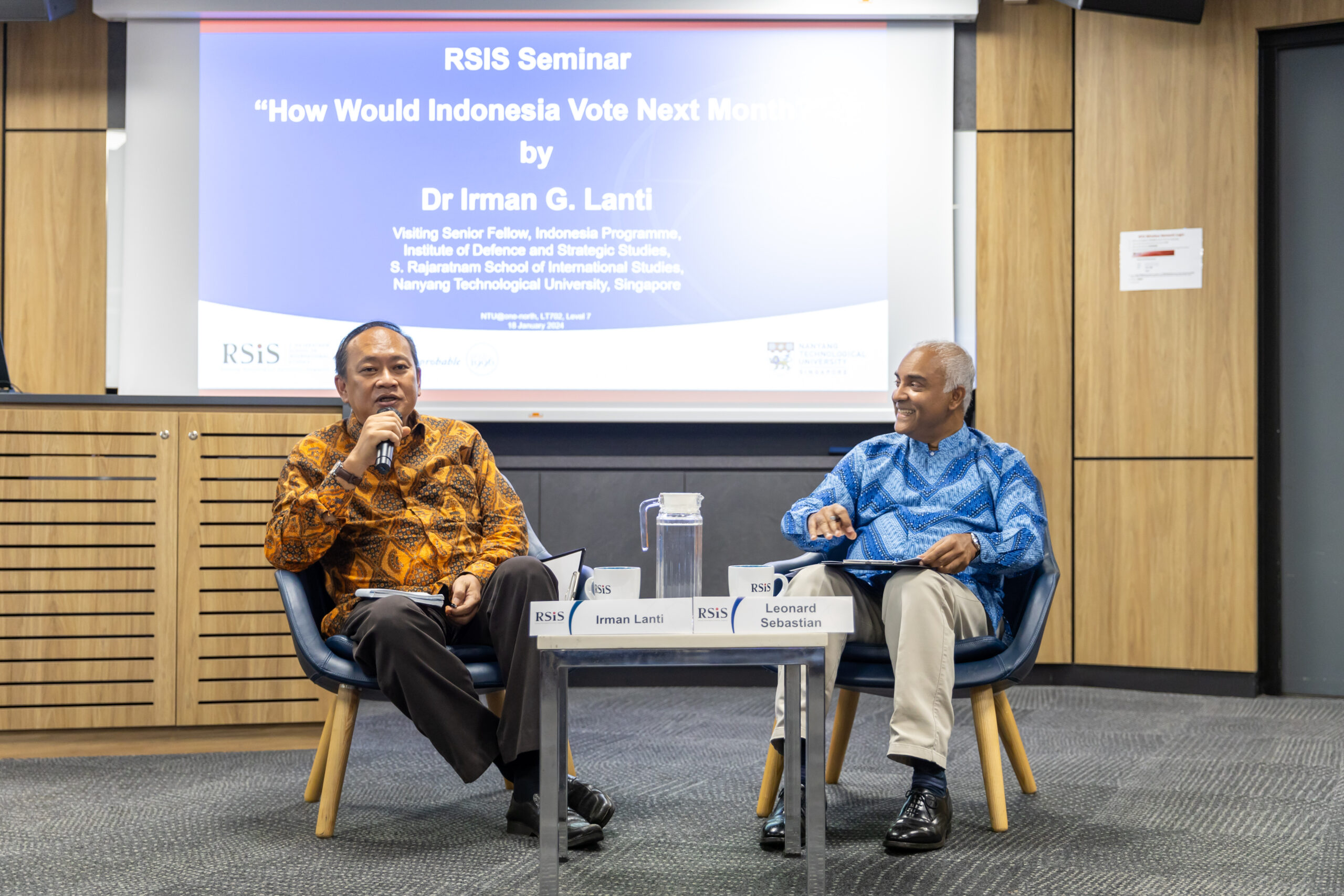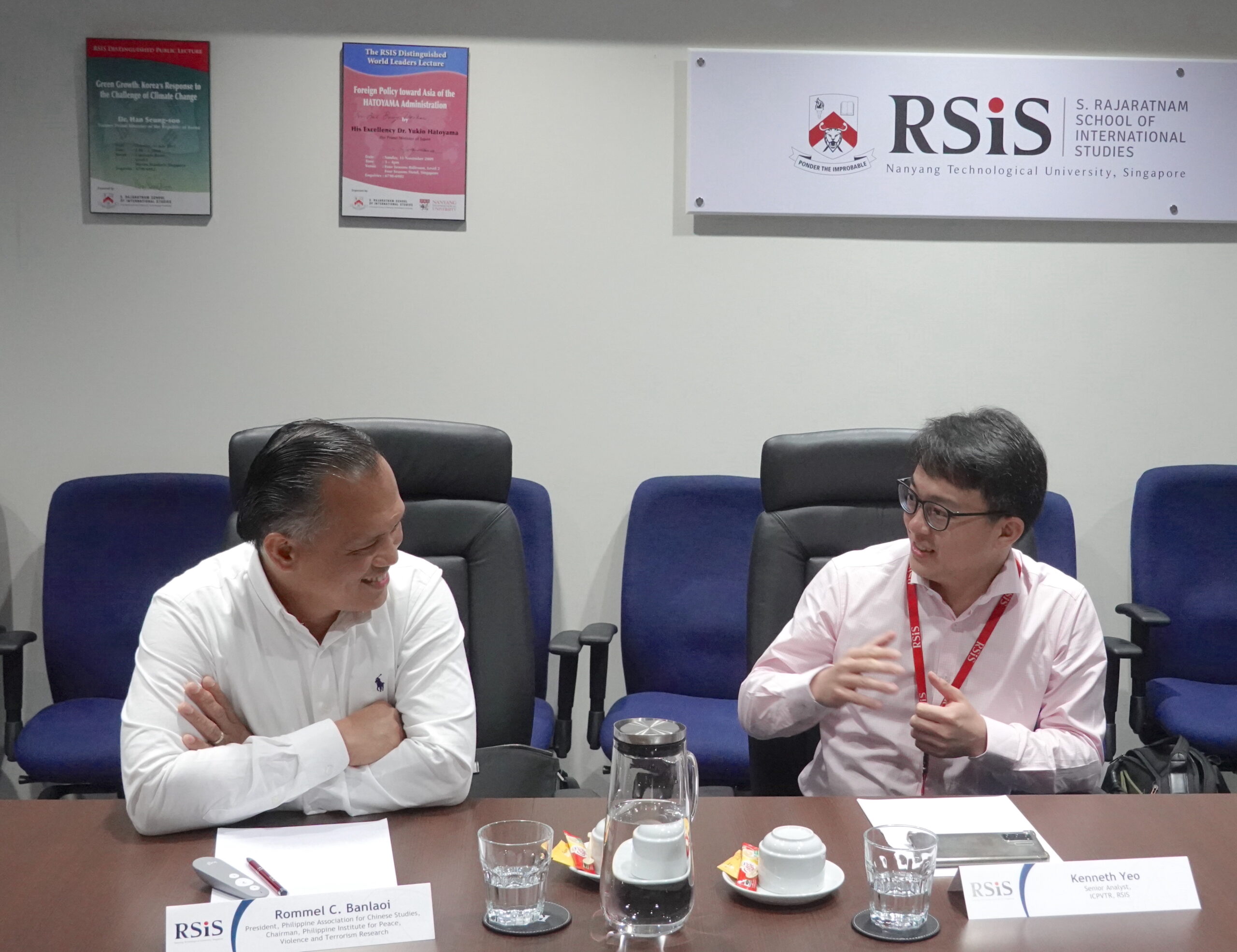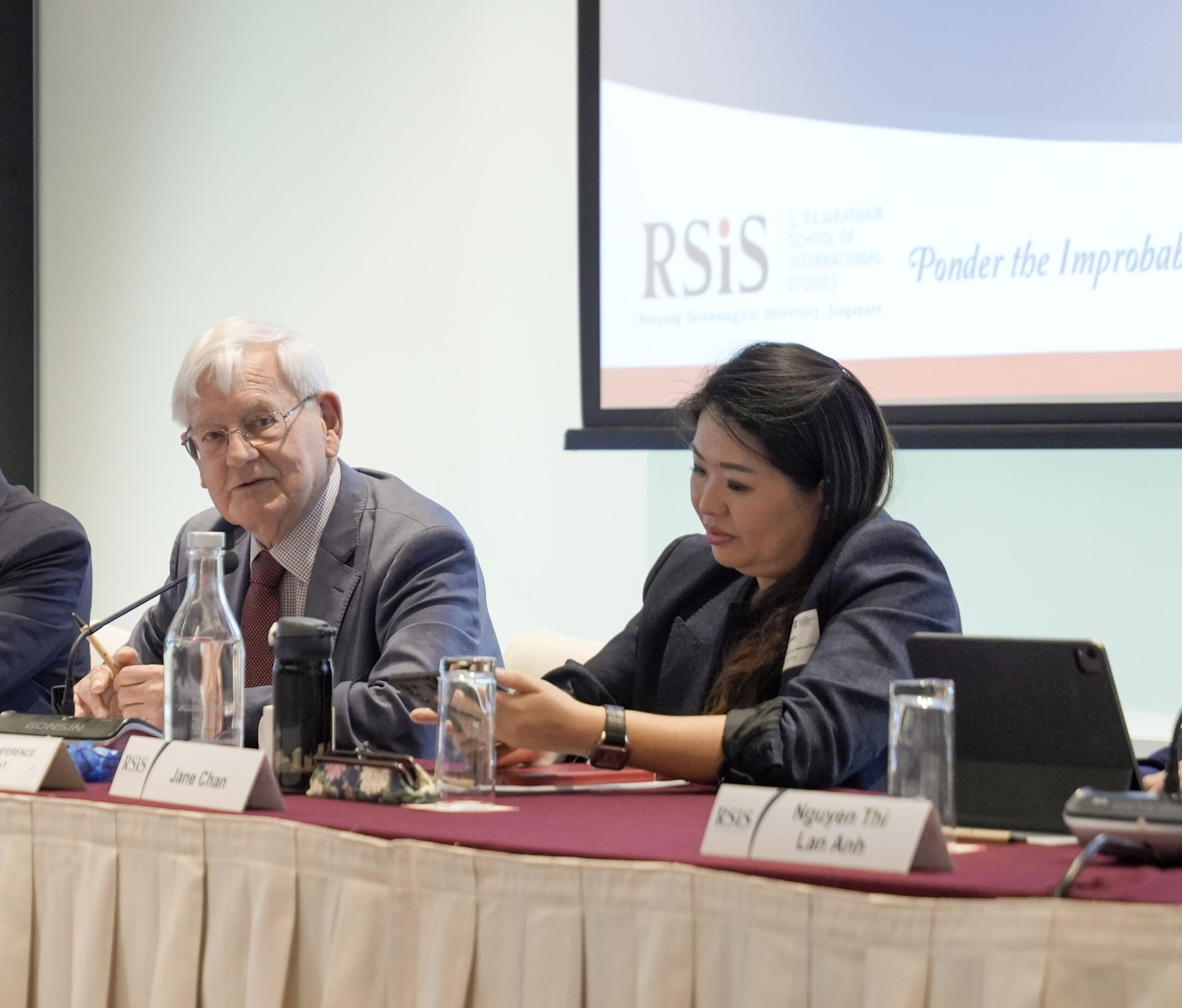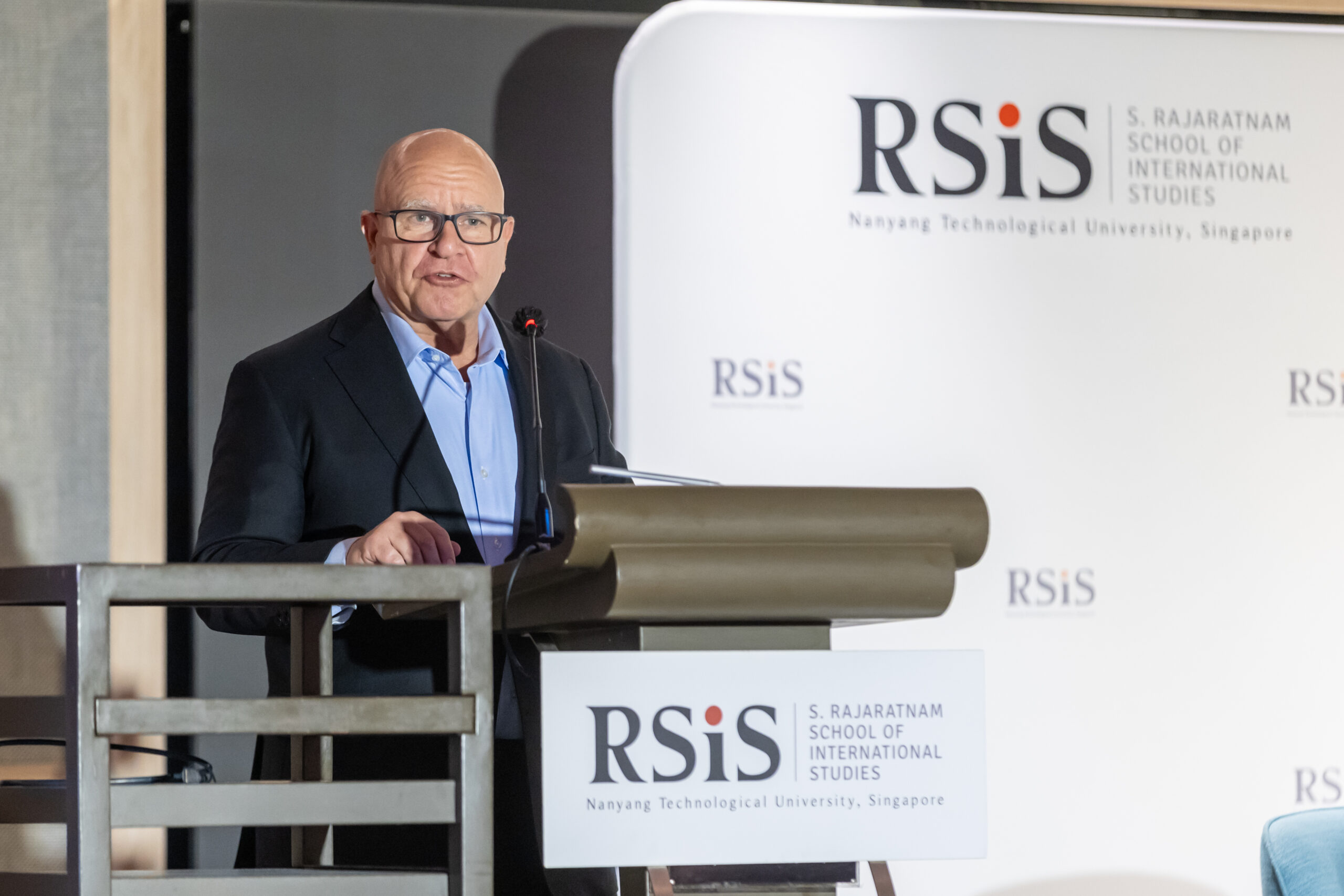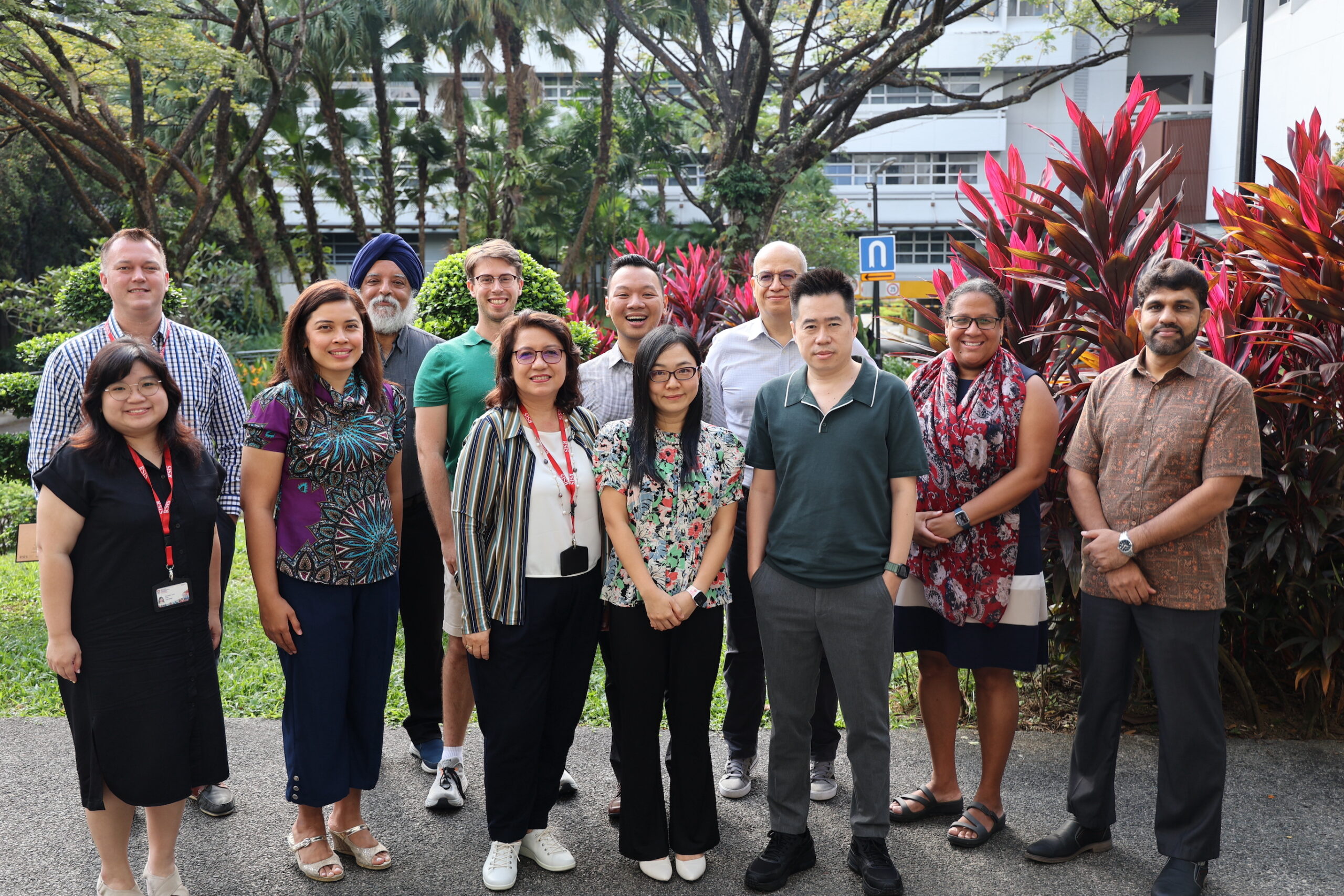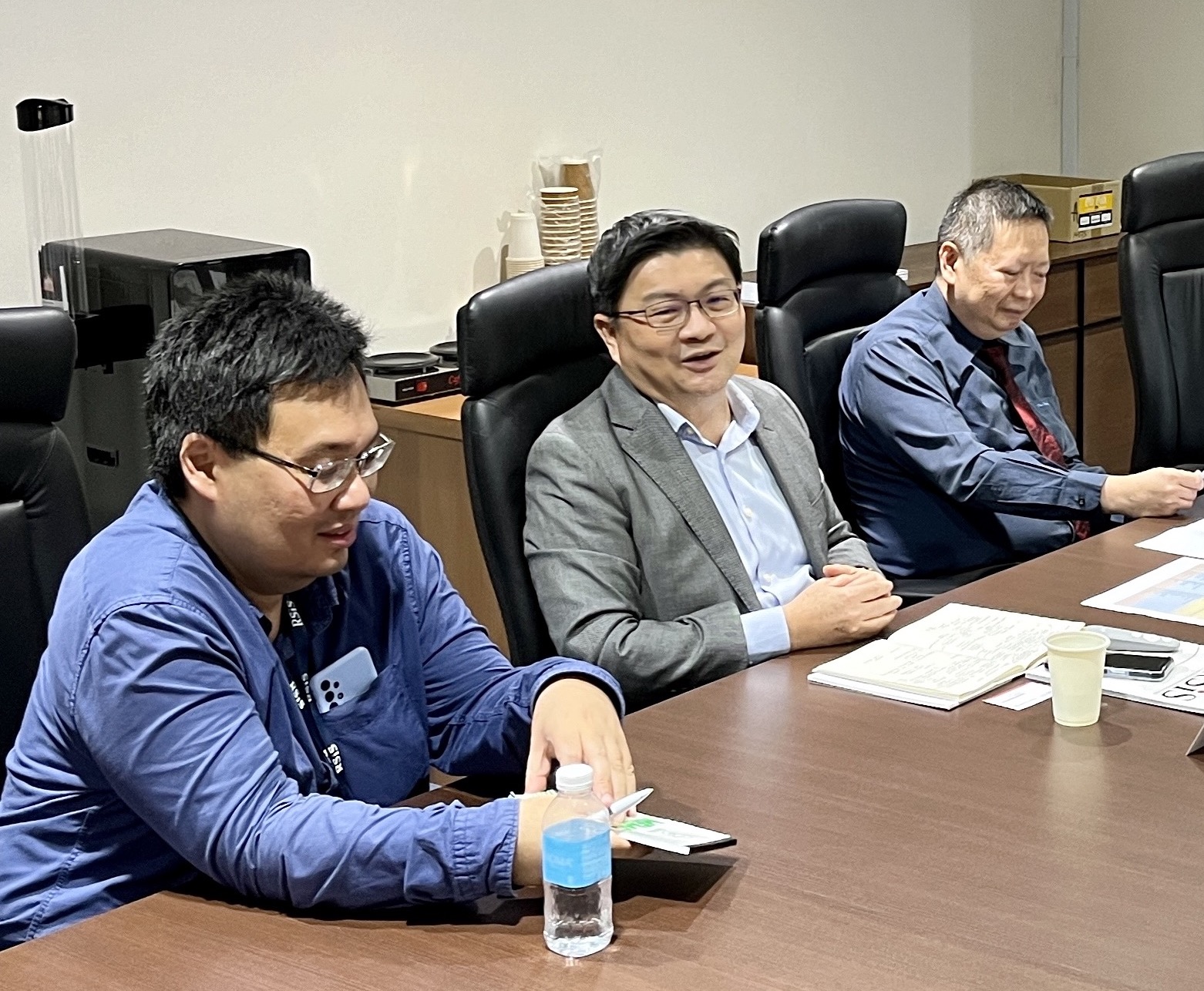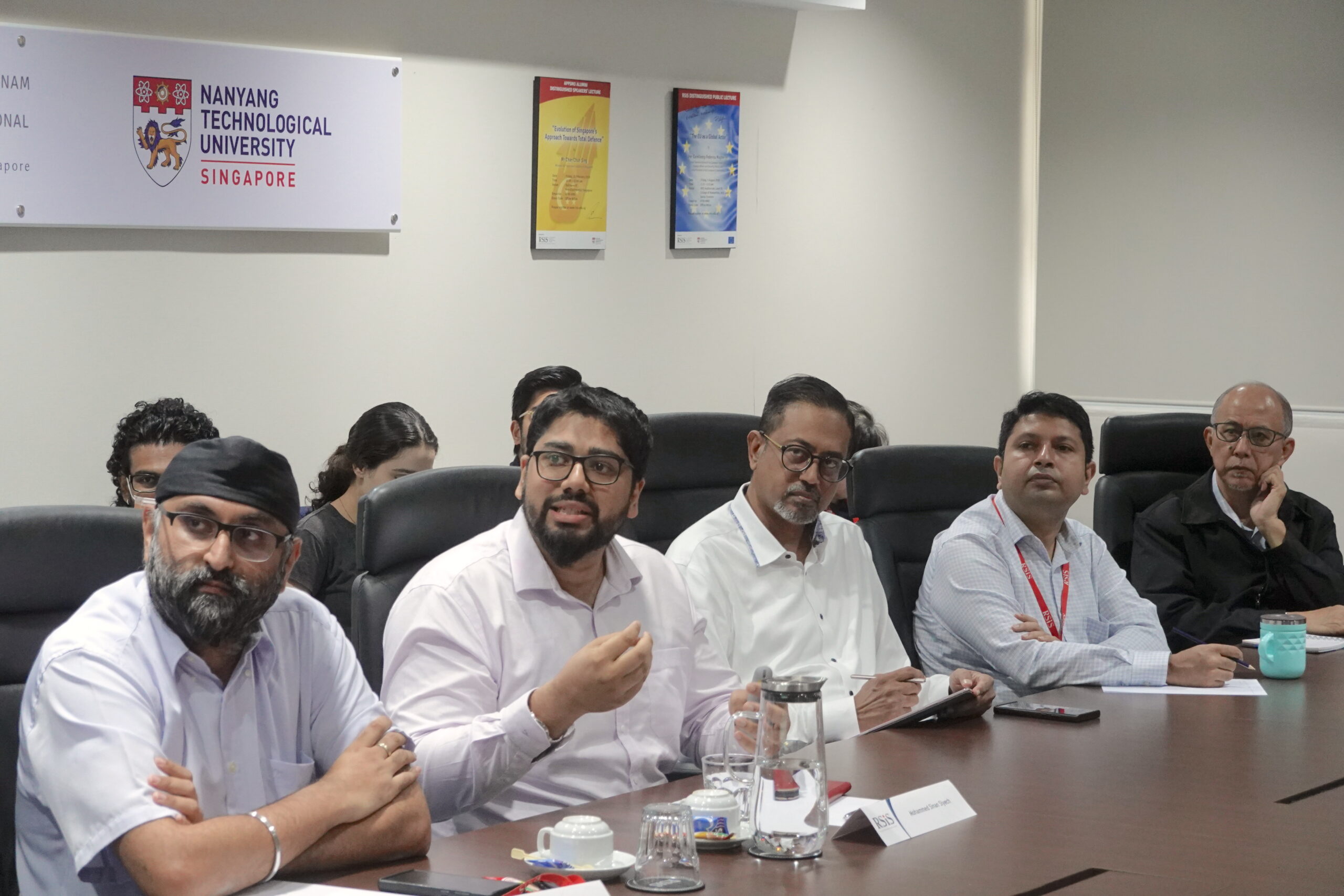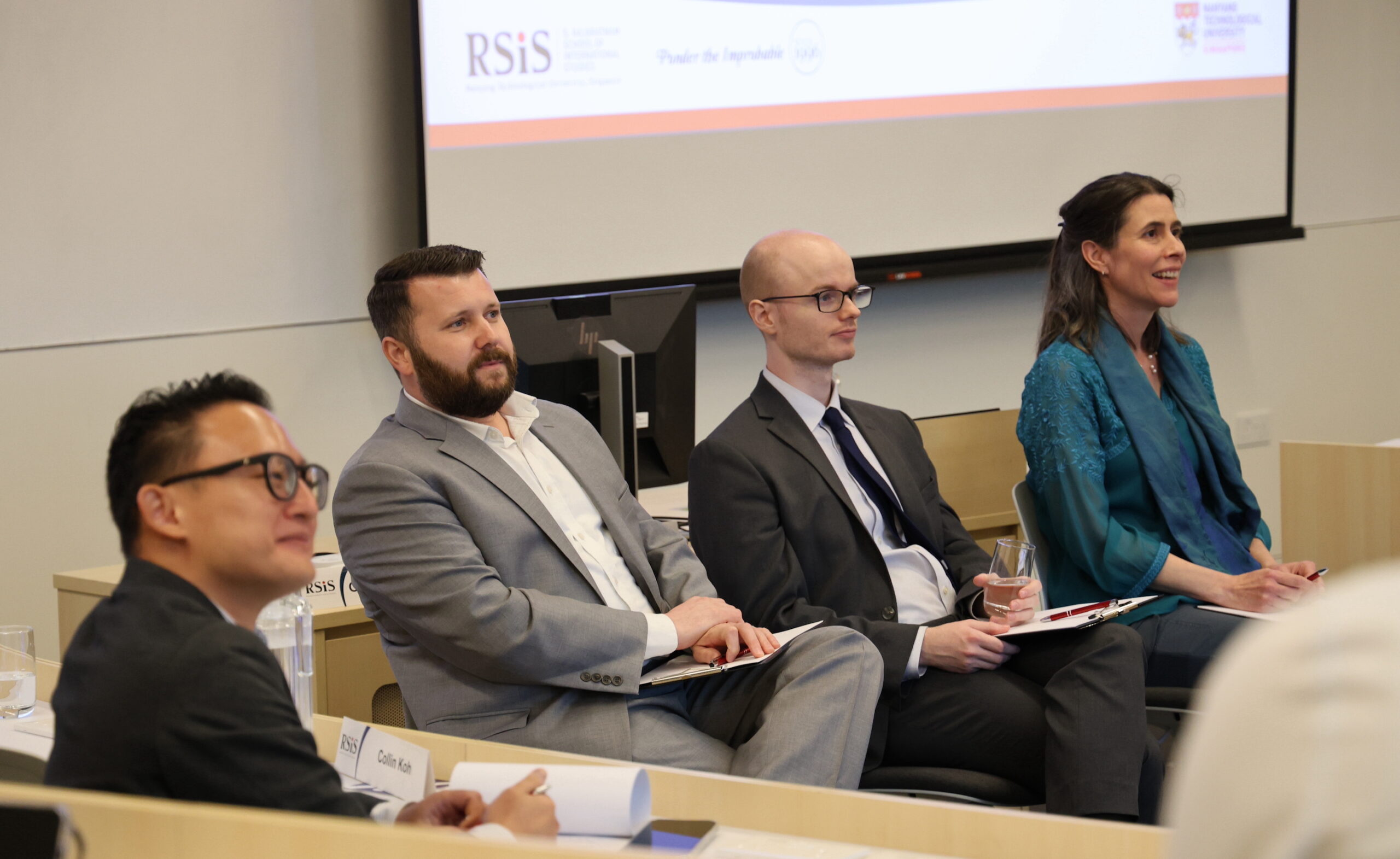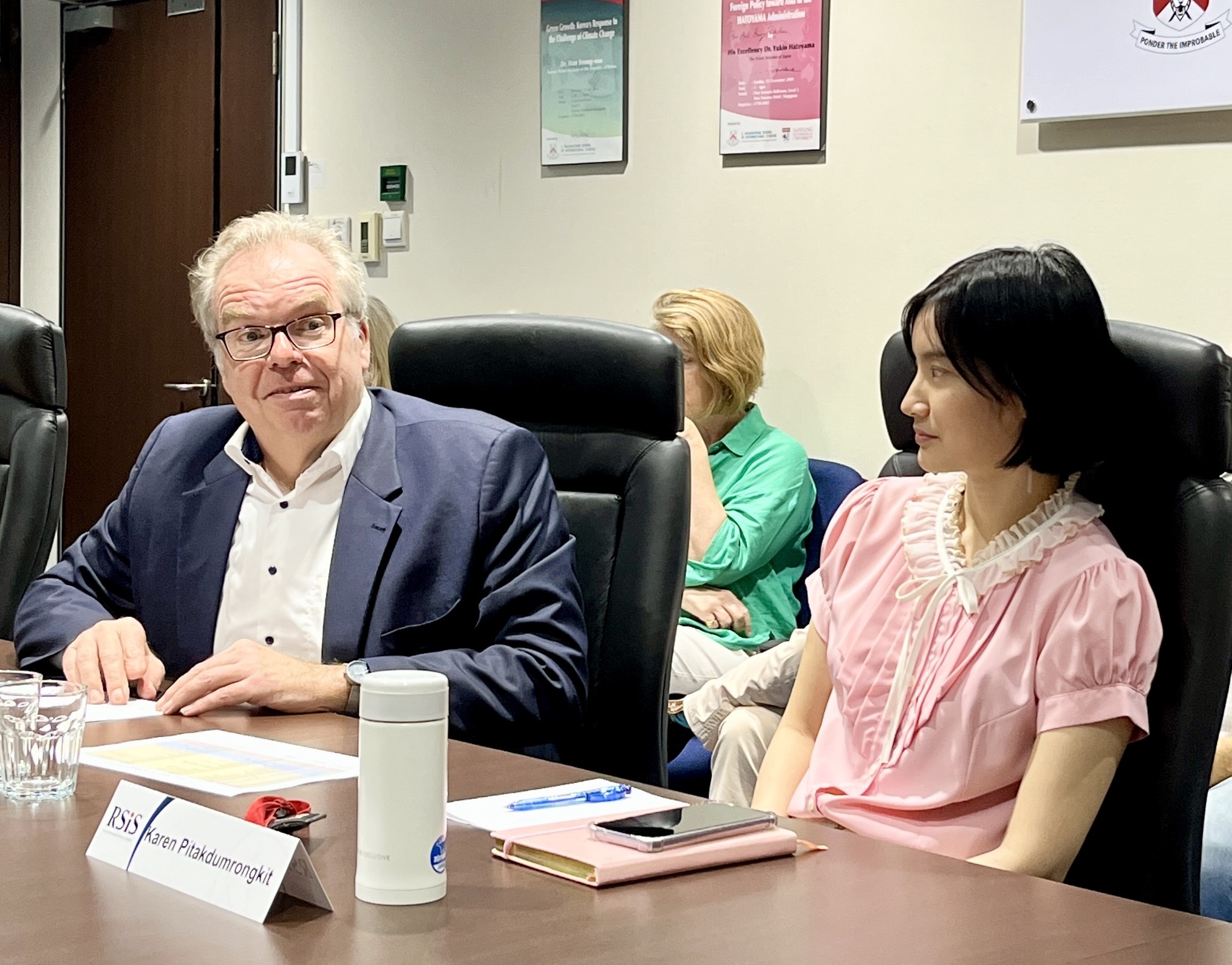

An ever-present zeitgeist of international relations, US-China geostrategic competition was the central focus of a recent conference titled “Rivalry and International Cooperation in the Age of the Fourth Industrial Revolution”. It was jointly conducted on 16 February 2024, by RSIS and King’s College London’s Project for Peaceful Competition (PfPC). The event featured four presentations from four expert panellists, moderated by Sir Oliver Letwin, visiting Professor of King’s College and former British cabinet minister, and included a small audience of researchers and academics.
The conference was divided into two themes, with two panellists presenting in each theme. The first theme was navigating the technological rivalry between the US and China. The discussion analysed the political and security ramifications of the US-China tech rivalry for small states and examined how ASEAN should navigate it in the presence of Chinese technology. The second theme demonstrated the possibilities of tech alliances and multilateral cooperation. This discussion focused on how regional players promoted multilateral cooperation in emerging issues, as well as the opportunities at the Track 1.5 or 2 levels to facilitate peaceful competition in technology.
These discussions generated compelling ideas. Most notably, recognition that states can benefit from US-China competition. In particular, the panellists recognised Singapore and Vietnam as two states which have successfully preserved close ties between the US and China, whilst diversifying their economies and resources to avoid overreliance. In essence, a dominant lesson throughout each discussion was the recognition of alternative opportunities and methods for interaction and cooperation beyond state diplomacy. For instance, maritime environmental cooperation under the Blue Economy initiative, and the possibilities for open dialogue in track 1.5 and 2 levels to promote collaborative exchanges. Importantly, the panellists emphasised the significance of non-state actors such as tech companies in facilitating inter-state interactions and collaborative projects, which are critical foundations for diplomacy and technological innovation.
Thus, while the conference began by demonstrating the risks of great power rivalry, it concluded by highlighting the diverse means of interaction and cooperation between small and middle powers in an increasingly polarised world. This provides hope for international cooperation and solidarity despite the instability emerging from great power competition.




